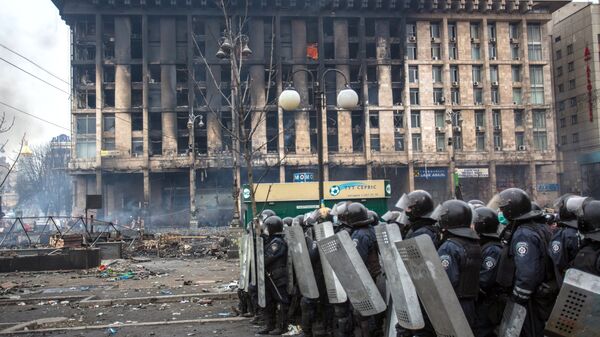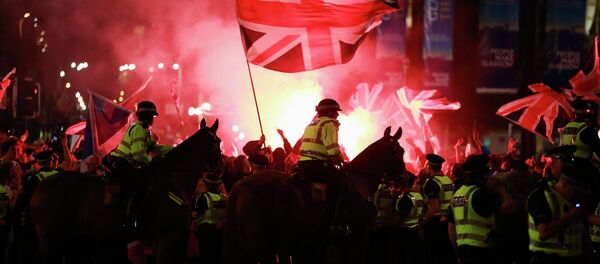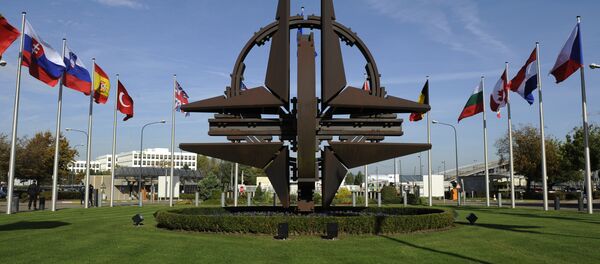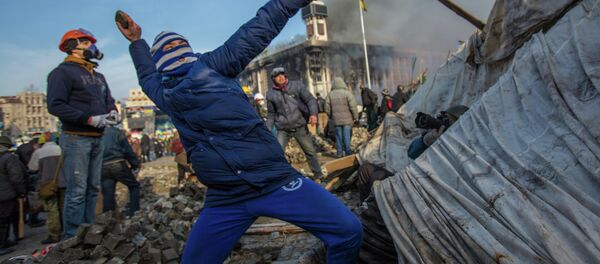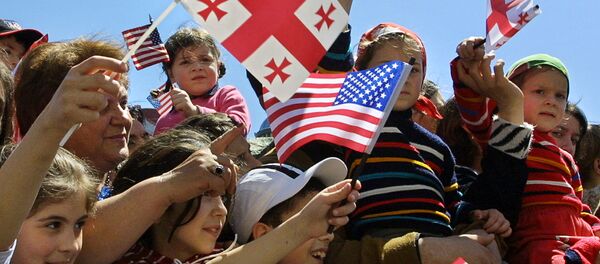In her recent analysis, published on the Atlantic Council website, Orysia Lutsevych, the manager of the Ukraine Forum at UK's Chatham House (another liberal interventionist think tank), sounds the alarm over what she calls "the long arm of Russian 'soft' power."
"Russian groups," she adds, "are particularly active in Georgia, Moldova, and Ukraine – countries that have declared their desire to integrate with the West."
Interestingly, focusing on these three countries, the analyst doesn't mention that their "desire to integrate with the West" was really an elite desire, as evidenced by the fact that pro-Western elites had to carry out coups in order to get into power. Nor does she recall that all of these countries have faced unprecedented levels of corruption and social chaos since their 'revolutions', to the point where the former Georgian president, Mikheil Saakashvili, was forced to flee the country in disgrace. And Moldova and Ukraine haven't fared much better, with the former facing months of street protests over a massive banking scandal and the pro-Western government's ties to oligarchs, and Ukraine facing economic collapse and full-blown civil war in the east.
But back on point: Lutsevych 'explains' that for its part, Russia has been using "a vocabulary of 'soft power' to disguise its 'soft coercion' efforts aimed at retaining regional supremacy. Russian pseudo-NGOs undermine the social cohesion of neighboring states through the consolidation of pro-Russian forces and ethno-geopolitics; the denigration of national identities; and the promotion of anti-US, conservative Orthodox, and Eurasianist values."
Unfortunately, Lutsevych doesn't get into the details of what 'Eurasianist values' are; nor does she explain what role 'conservative Orthodox' values and 'ethno-geopolitics' play in Russia's complex partnerships among its allies in Central Asia and the Caucasus. As for the truly wicked act of offering 'alternative discourses', who knew that the idea of 'alternative viewpoints' could be spun in such a negative light?
Ultimately, the analyst warns, "the activities of these proxy groups," as well as regional countries' political, economic, religious, and cultural connections to Russia, left over from the Soviet and Imperial Russian days, threaten to "seriously damage fragile political transitions and civil societies in the region," (transitions toward the European Union, Washington and NATO, of course).
The West's Response
Moreover, she emphasizes, "Russian state media operating abroad must be closely monitored for compliance with the broadcasting regulations of their host countries and, where necessary, sanctioned for violations." The saga of the conflict between the Sputnik news agency and the Latvian government, which banned the.lv domain and vowed to 'monitor hostile propaganda', seems to be the kind of model Lutsevych is proposing. Incidentally, Sputnik Latvia's traffic soared following the domain ban last month.
Another step that can be made, she says, includes the funding of "watchdog organizations" which "should challenge disinformation and launch professionally produced, authoritative information sources targeted at Russian-speaking populations."
If attempts to discredit experts, monitoring Russian media and the creation of counter-propaganda isn't enough, Lutsevych notes, pro-Western elites should go a step further and silence the pro-Russian groups directly. "The activities of proxy groups in host countries should be closely monitored and closed down if they are deemed to undermine state sovereignty or represent a threat to territorial integrity." This sort of thing, it should be noted, has already been done in several countries, Ukraine being the most prominent example.
Ultimately, the analyst concludes with standard liberal interventionist fare about Western 'pro-democracy' programs focusing on civil engagement, making contacts with civil society actors, and promoting social cohesion, trust, and "the common ground that could expedite reforms and result in more democratic societies."
That's all well and good, but two questions come out of Lutsevych's recommendations: a) how is monitoring, clamping down on and silencing the 'pro-Russian' viewpoint conducive to social cohesion and democratic values? And b) if the extension of Russian soft power in the pro-Soviet space is inherently wicked, what makes Western involvement, which doesn't have the same centuries' long historical, cultural, economic, political experience of engagement, any better?
